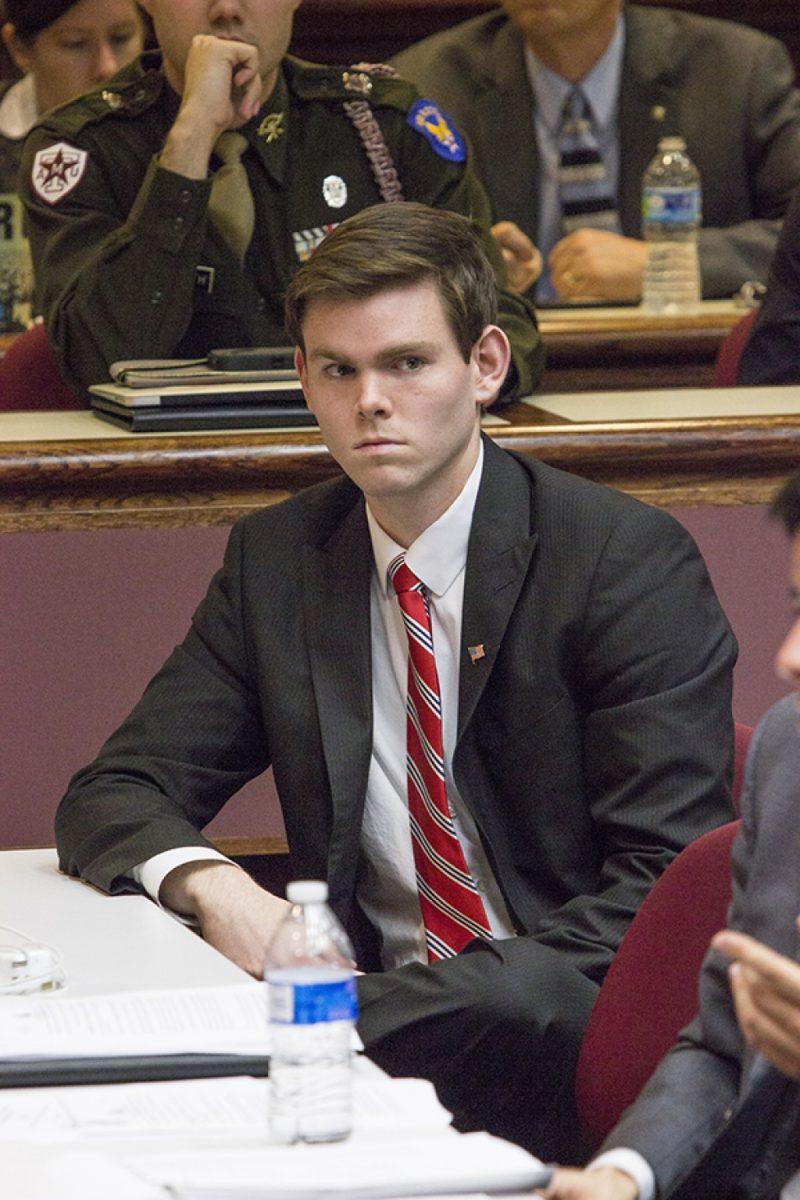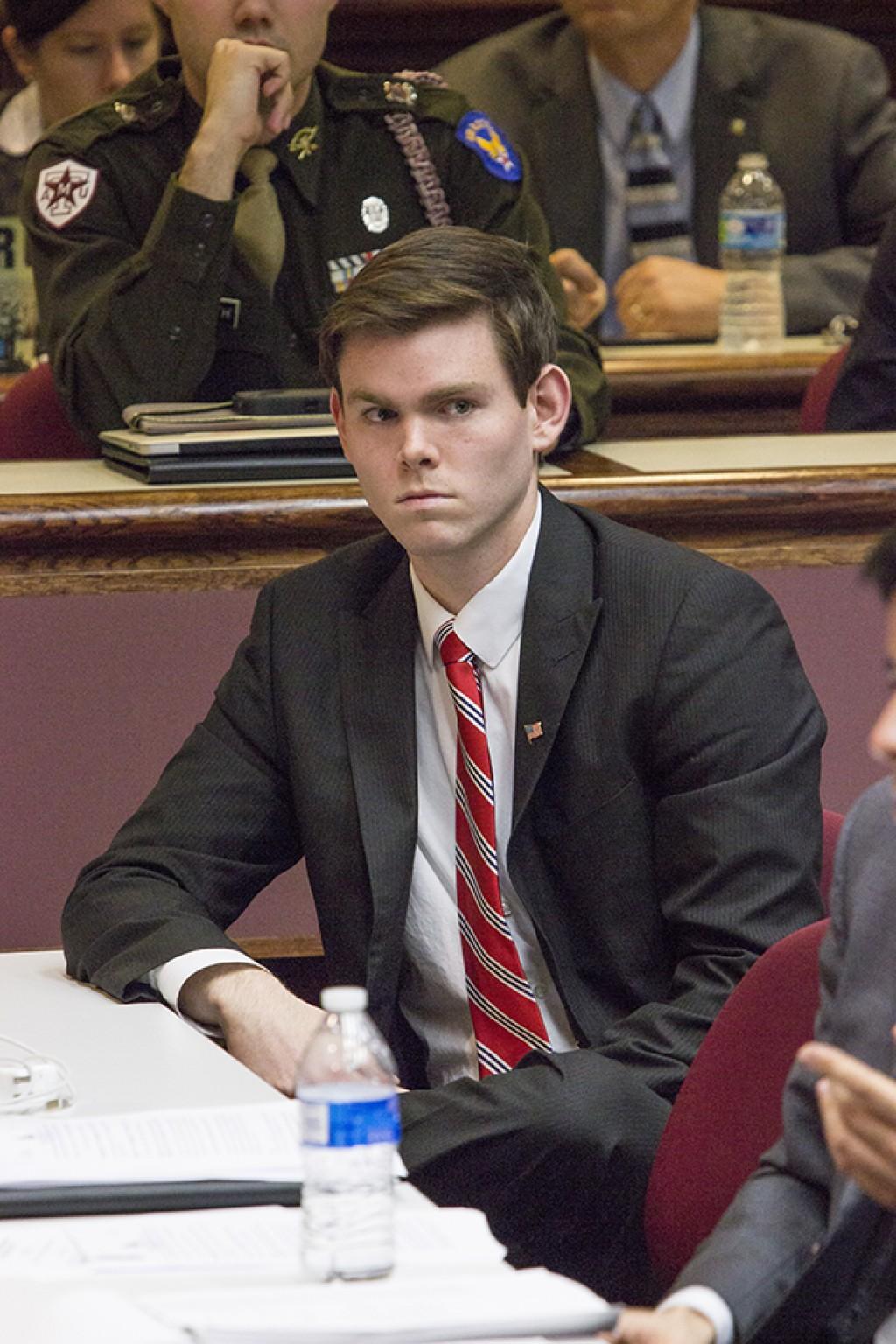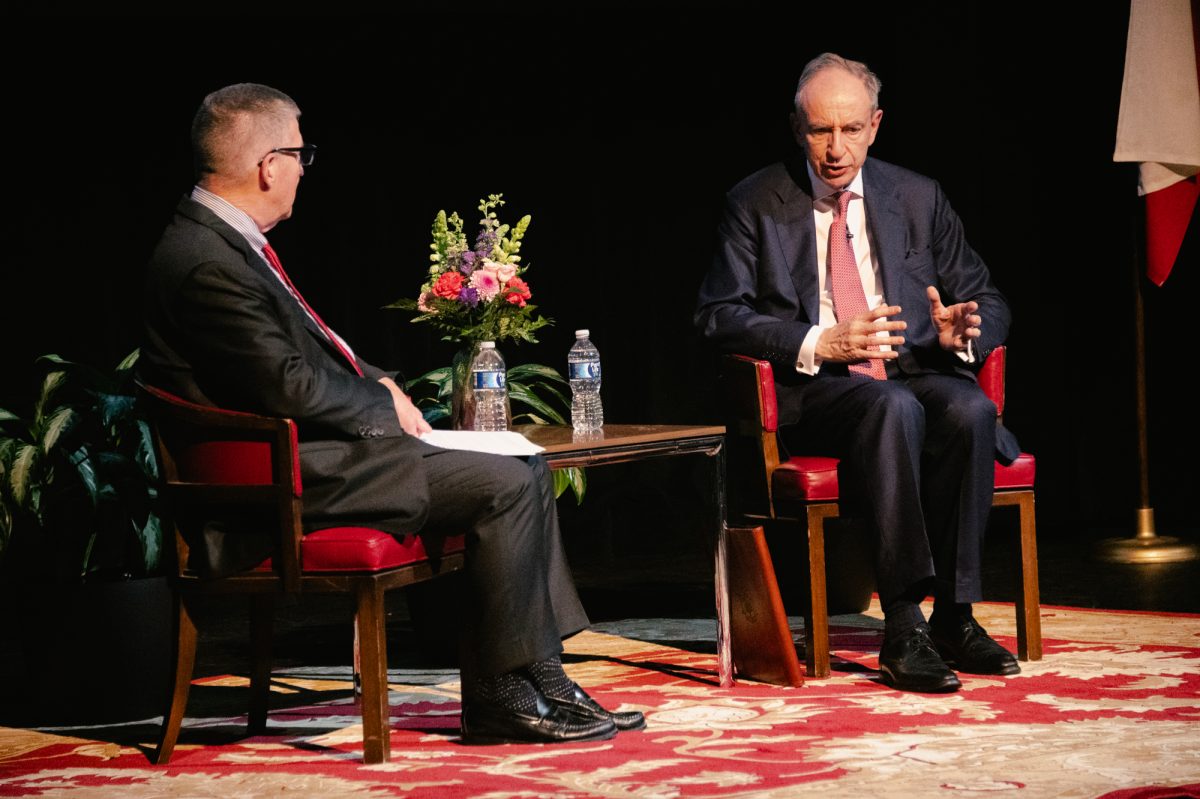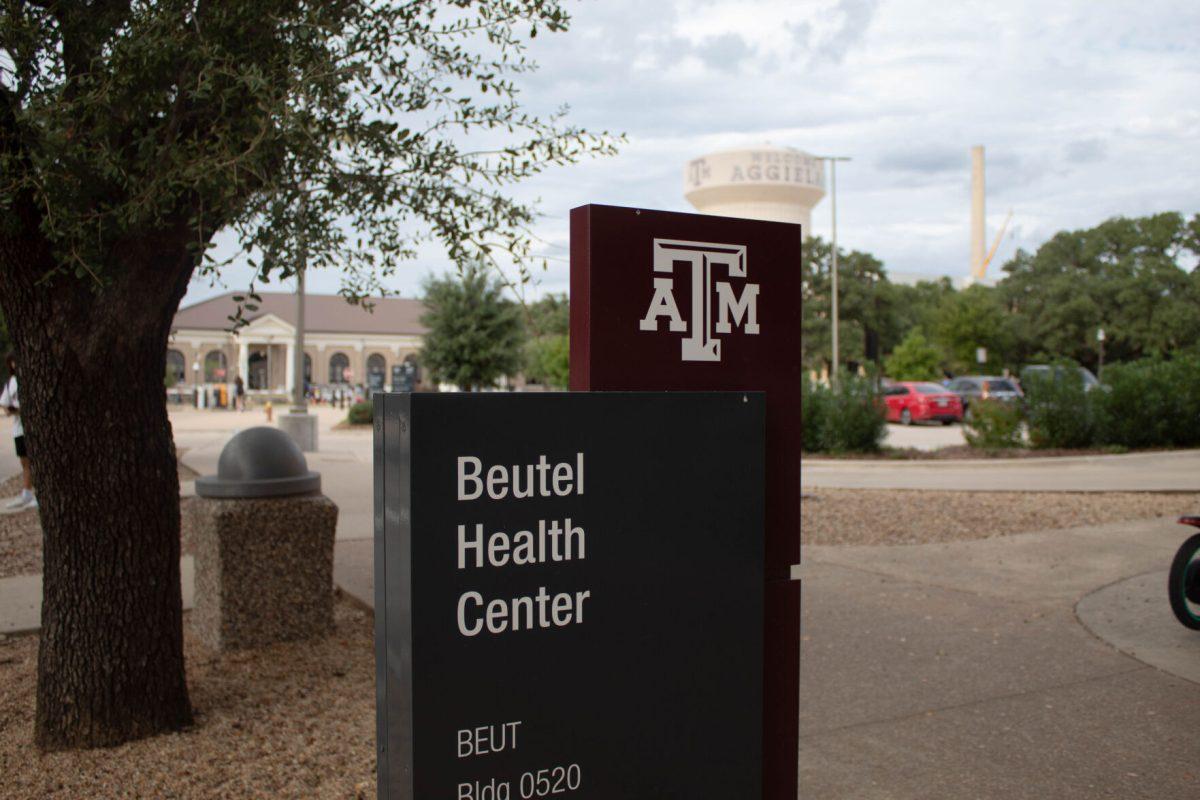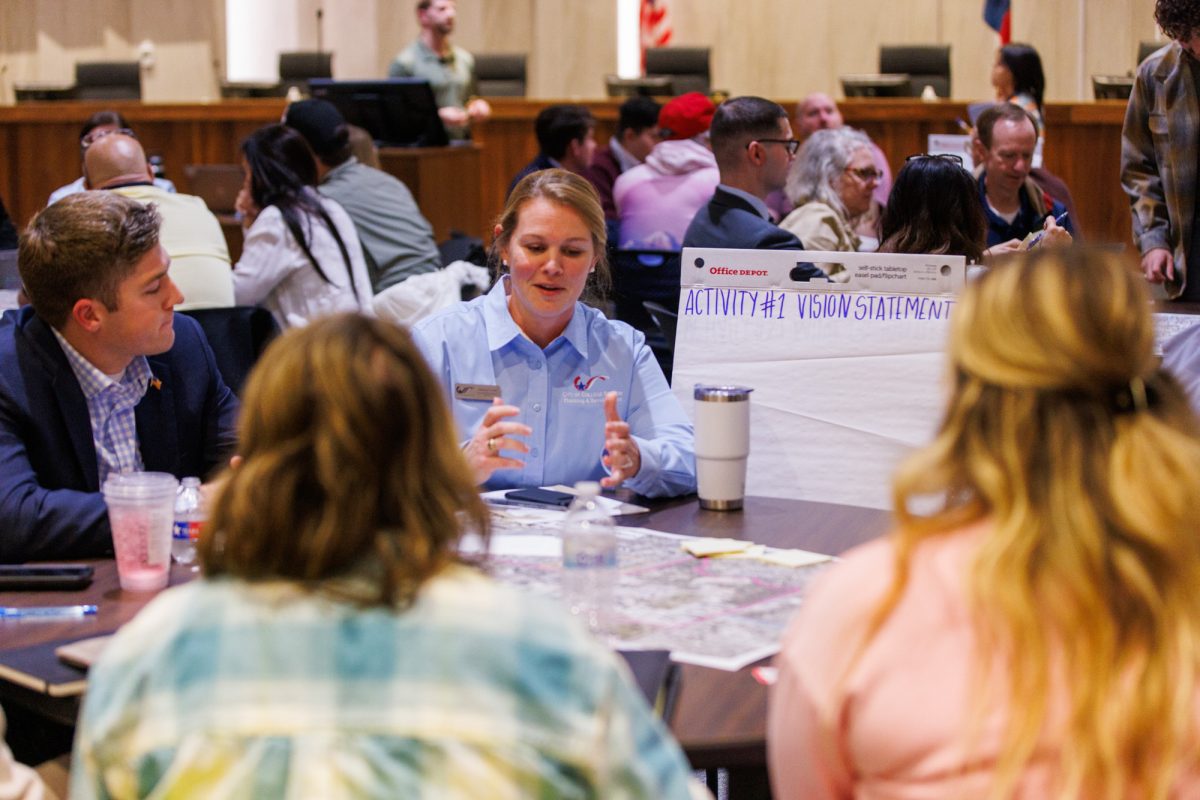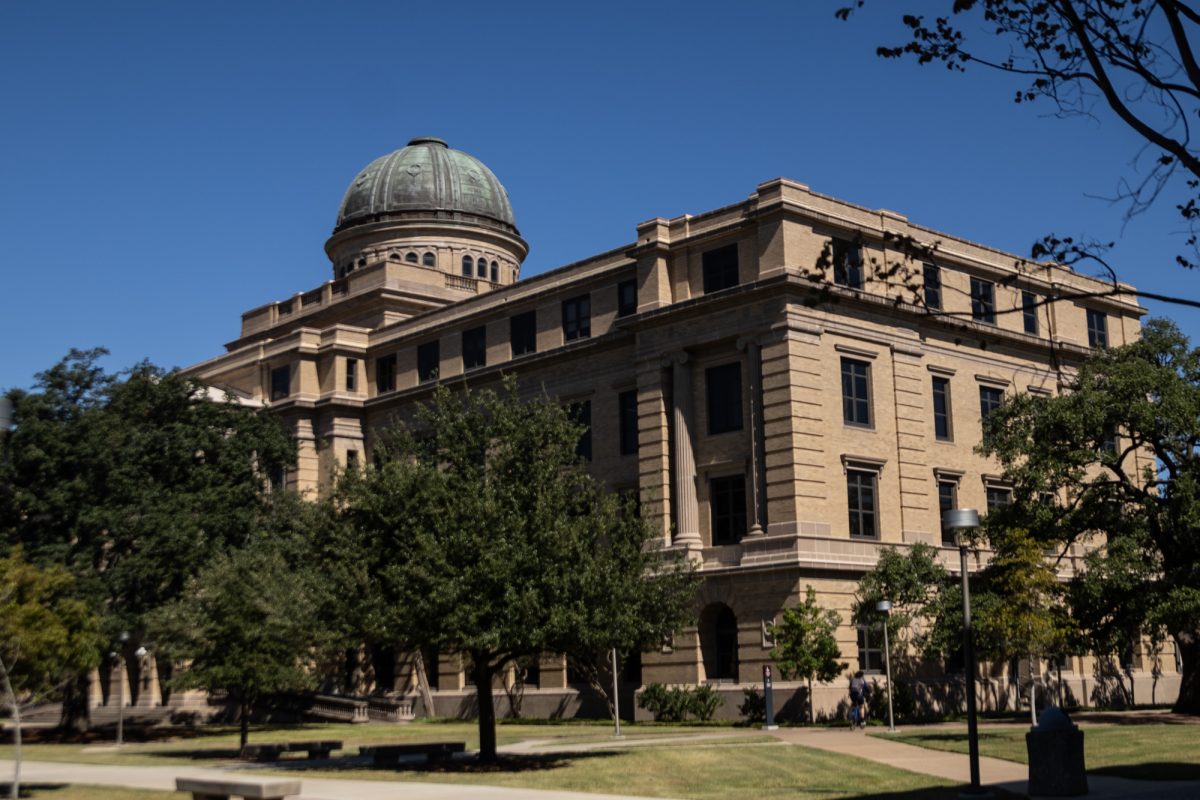A Student Government Association Judicial Court case that could have bearing on next year’s student body president will move forward after a Wednesday pre-trial hearing.
Murtha v. Benigno and Douglas will proceed to a full trial at 9 p.m. Monday after J-Court justices decided enough evidence was present to debate whether the defendants would face penalties resulting from the election season.
The appeal, filed on Murtha’s behalf by former Student Senate speaker Christopher Russo, outlined violations of election commission guidelines in a campaign video released by Student Body President-elect Joseph Benigno.
In the video, “Go(Pro) With Joe,” Benigno rides a moped around College Station and the appeal alleges he violates several campaign regulations and state traffic laws — failure to stop at a stop sign, operating a motorcycle without a helmet under the age of 21 and driving on the left side of the roadway in a no-passing zone, among others.
The appeal is also filed against Election Commissioner Emma Douglas, and claims the commission “neglected their duty to properly and fairly enforce
the Texas A&M Student Government Association Election Regulations.”
The defense’s pre-trial stance largely centered on two arguments — that the appeal is inherently flawed by lumping Benigno’s and Douglas’ allegations into one appeal, and that A&M’s Judicial Court has no jurisdiction to rule on traffic violations without a previous ruling by a Texas court of law.
“Emma and I have been improperly lumped together,” Benigno said. “The case as it stands would not be due process. To vote to move on with this case is a vote against due process.”
The defense argued that two separate trials should be held to determine individual guilt before grouping the two together.
Russo argued on Murtha’s behalf that the court must hear the case to establish consistency and legitimacy within SGA, referencing previous fines levied against former student body president candidate Isaiah Tsau.
Tsau was fined $200 and $300, respectively, by the election commission for two instances of campaigning in off-limit areas.
“The issue is if the same standards were applied in a previous case adjudicated by the election commission, if the election commission were to be consistent, that would place the defendant over budget,” Russo said. “That is why we filed a complaint against both parties.”
Russo also referenced J-Court appeal regulations, which state the plaintiff may be required to name any or all defendants in the case.
To further challenge the case’s procedural workings, Benigno’s defense argued the court does not have original jurisdiction over the case on the grounds that any state or local convictions were never handed down in a state court of law.
Citing Article V of the Texas Constitution, the defense stated that, for misdemeanor cases punishable by fine only, original jurisdiction lies with the Justice of the Peace Court, leaving SGA fundamentally incapable of determining guilt.
To rebut this claim, the plaintiff’s counsel argued a conviction is not necessary to show a violation of the rules, citing photographic evidence of Benigno actively campaigning in off-limits areas.
“Ignoring state penal code, this still has to be heard for the same reasons the O’Rourke case was heard,” economics senior Clayton Cromer said on Murtha’s behalf. “They broke the rules that say you can’t hold campaign materials off campus.”
Elections in flux: Push to penalize alleged SBP campaign infractions rolls on forward
February 26, 2015
Allison Bradshaw and Tim Lai — THE BATTALION
Michael Murtha is present at the Judicial Court hearing regarding to alleged SBP election violations.
0
Donate to The Battalion
$810
$3500
Contributed
Our Goal
Your donation will support the student journalists of Texas A&M University - College Station. Your contribution will allow us to purchase equipment and cover our annual website hosting costs, in addition to paying freelance staffers for their work, travel costs for coverage and more!
More to Discover




